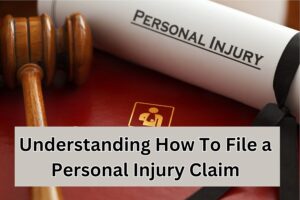When You Need to Consider Bringing a Wrongful Death Claim

Losing a loved-one is a very traumatic experience. Dealing with the loss takes time. But when the loss occurs due to the negligence of someone else, you need to promptly speak to a wrongful death lawyer regarding your right to bring a wrongful death claim.
What is a Wrongful Death Claim?
A wrongful death claim is a claim created by statute granting specified heirs they right to sue on behalf of someone who has lost their life due to the negligent actions of another person or company. It allows certain close relatives to make a claim for damages permitted by stature for damages such as the pain, suffering, mental anguish, loss of society, loss of consortium, loss of inheritance, and loss of household services that the close relatives endure due to the accidental death. The death may be the resulf of any type of negligence such as a car accident, slip and fall, medical malpractice, on-the-job injury, defective product, or other cause.
Who May Bring the Wrongful Death Claim?
Who has the right to bring the claim often varies from state-to-state. In most states, the spouse, parents and children of the deceased may bring a wrongful death claim. Some states allow siblings to bring the claim or may allow them if none of the afore-mentioned relatives step up. Furthermore, in many states, if no authorized heir steps up within a specified time period, the administrator of the decedent’s estate may bring a wrongful death claim.
How Long do I have to Bring a Claim?
Most states have a protective window that allow only the named relatives to bring the claim. In Texas, for example, this is three months. If no one steps up in that time period, then anyone who can qualify as an administrator of the estate may file the claim and take control of the lawsuit. Thus, it is important to act before that period expires if you want to have the final say so in how the case proceeds. Additionally, there is a Statute of Limitations on wrongful death claims that may be anywhere from one to three years depending upon the state. Failure to bring the claim before the applicable state statute expires may result in your claim being forever barred.
What if the Person Has no Qualifying Heirs?
Under many state laws, if there are no qualifying heirs, the wrongful death claim ceases to exist. Personal injury claims did not survive death under the common law. To prevent the right to justice from simply going away, states created statutes allowing that right to pass on to certain specified people. However, if no such people exist, then the claim typically dies with the deceased person. Some states may have other provisions for this, but it is common in many states for the claim to simply cease to exist. Thus, you should check with an attorney as soon as possible to determine your state’s laws.
Conclusion
If you have lost a loved one due to the negligence of another, you should consult a wrongful death attorney as soon as possible after the incident to ensure that 1) you gain control of the case vs a court-appointed stranger, and; 2) you do not let the applicable deadlines expire your case.
Author Bio:
Paul H. Cannon is a trial attorney and shareholder at Simmons and Fletcher, P.C. He has been practicing personal injury and product liability law since 1995. He is Certified in personal injury trial law by the Texas Board of Legal Specialization since 2005.






